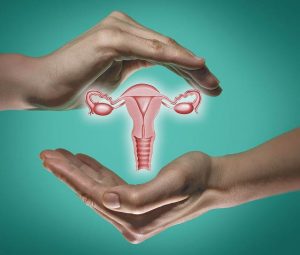 January has been designated by the US Congress as Cervical Cancer Awareness month. Good thing we have a month dedicated to it, because otherwise, most of us aren’t thinking much about our cervix. As a part of the female reproductive system, it seems to be the part that gets little or no attention unless you’re about to give birth, of course. Then we are obsessed with it and what it is and isn’t doing. But do you know what your cervix is doing on a normal day?
January has been designated by the US Congress as Cervical Cancer Awareness month. Good thing we have a month dedicated to it, because otherwise, most of us aren’t thinking much about our cervix. As a part of the female reproductive system, it seems to be the part that gets little or no attention unless you’re about to give birth, of course. Then we are obsessed with it and what it is and isn’t doing. But do you know what your cervix is doing on a normal day?
The cervix is the passageway into and out of the uterus. It allows for the passage of menstrual fluid from the uterus and sperm needs to travel through it in order to reach the uterus. During child birth, it widens to allow for the passage of the baby.
Though most women don’t think about the cervix unless they are pregnant or trying to get pregnant, your cervix is actually doing a lot even at this moment. It has a vital role in protecting your health and helping your reproductive system run smoothly. It may even help you to have a better sex life. Some women report orgasm from cervical stimulation!
What is your cervix doing now?
The cervix has two main functions: guarding the door so that nothing gets in and opening the door when it is time for something (menstrual flow or a baby) to come out. When a woman is not pregnant, the cervix protects you by keeping germs and foreign objects (bath water, a penis, tampons) from getting inside the uterus. If you are trying to get pregnant, it is the gateway for the sperm to reach the egg. If you are pregnant, the cervix helps keep the baby tucked up nice and snug in the uterus. Then when it is time, it opens up to let the baby out.
Another important function of the cervix is to alert us when something is wrong. Due to its position, it often is the first site of an identifiable bacterial or viral infection. These may include cervical cancer, sexually-transmitted infections, and other diseases as well. If you notice an unusual odor or odd discharge in the middle of your cycle, if your doctor sees changes in the surface of the cervix during an exam, or a test (Pap smear) may indicate changes in the cells of your cervix. This is why it is so very important to get regular gynecological exams. You may be walking around with a problem you cannot see or detect on your own.
Yet another function of the cervix is that it can be a good indicator of where you are in your cycle. It can help you know if you are ovulating or when you are most fertile. At the beginning of your cycle, right after bleeding stops, you will notice a creamier discharge or mucous. When it is time to ovulate, discharge turns thinner, watery and slightly sticky, which is apparently what sperm love to travel in. Then, in the luteal phase, the cervical mucus becomes thick and hostile to sperm.
What could go wrong?
Cervical polyps and cysts
A polyp is a small growth that appears on the surface of the cervix. They are almost always benign, meaning they are not cancerous. However, a small number of them can become cancerous over time so most gynecologists will recommend removing them.
A Nabothian cyst is also benign. It is a mucus-filled lesion that forms when the mucus-secreting glands are blocked. They don’t usually require treatment, but can be drained by a healthcare provider.
Cervicitis
Cervicitis is an inflammation of the cervix. It is usually caused by a sexually transmitted infection such as chlamydia or gonorrhea. Occasionally, it can be related to using a cervical cap, IUD, or an allergy to a spermicide or latex condoms.
Cervical Dysplasia
Cervical dysplasia is a condition in which abnormal cells grow on the surface of the cervix. It is not cancer, but it is considered a precancerous condition. It can be detected during a Pap test and will usually resolve with treatment and follow-up care.
Cervical Cancer
Cervical cancer is cancer that forms in the cells of the cervix. Most cervical cancer is related to infection by the human papillomavirus (HPV). HPV is a common sexually transmitted infection.
In the early stages, cervical cancer usually has no symptoms. In later stages, symptoms can include bleeding or spotting between periods, heavier than normal menstrual periods, pelvic pain or pain during sex, and abnormal discharge.
Cervical cancer is easiest to treat in the early stages, so it’s important to have a regular Pap smear. A Pap smear can identify abnormal cervical changes long before they become cancerous.
If you are looking for a team of medical professionals to talk to you about your cervical health, the team at Well-Being Medical Center in Naples is available and ready to help. They offer a wide variety of service including preventative care, health consultations, and pride themselves on patient satisfaction.
Dr. Ricardo Martinez
Dr. Ricardo Martinez is an internist in Naples, FL and is affiliated with NCH Baker Hospital. He received his medical degree from Superior Institute of Medical Sciences of
Santiago de Cuba and has been in practice 20 years. He also speaks multiple languages, including Spanish. He specializes in hospital medicine, ambulatory care and is experienced in hospice and palliative medicine, bariatric medicine, diabetes mellitus, food allergy, and infectious disease. As of March 16th, 2020, Dr. Martinez has founded Well-Being Medical center in Naples Florida. He is looking forward to providing Medical care within primary care settings and urgent care service throughout the Naples Florida area.
Well-Being Medical Center
239-315-7801
www.well-beingmedicalcenter.org
851 5th Ave. N. Suite 102, Naples, FL 34102










